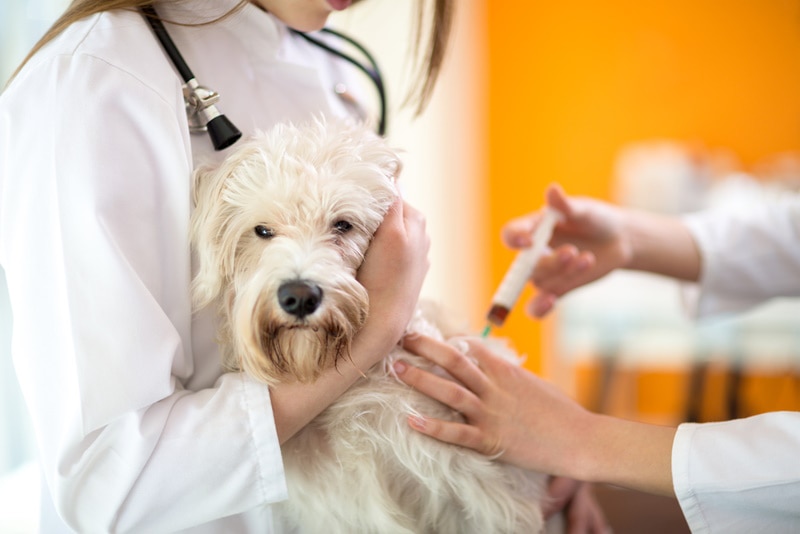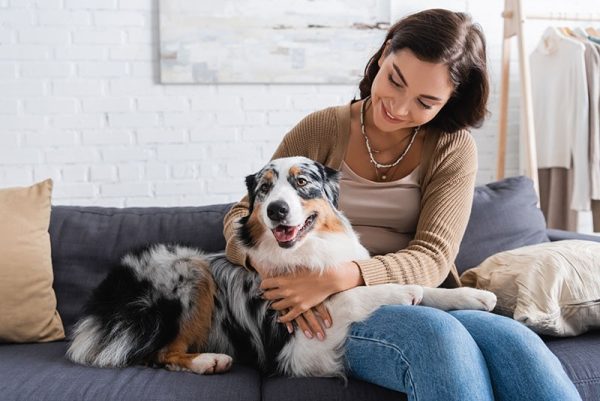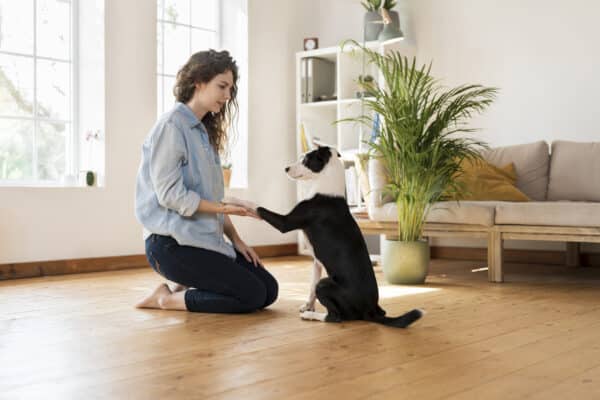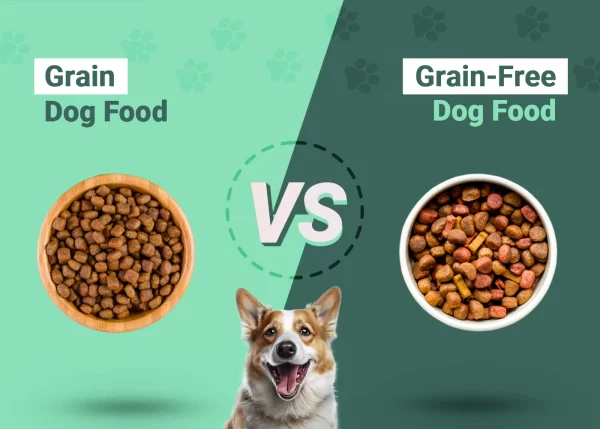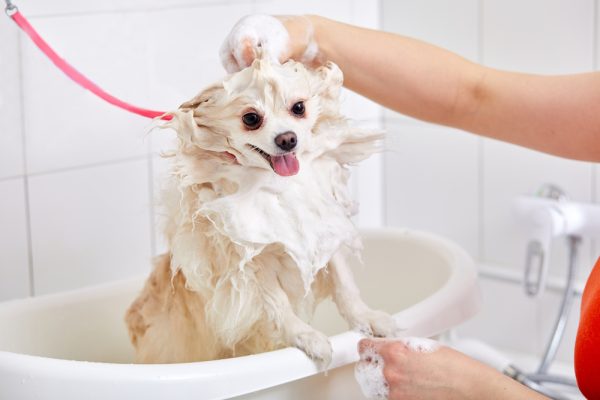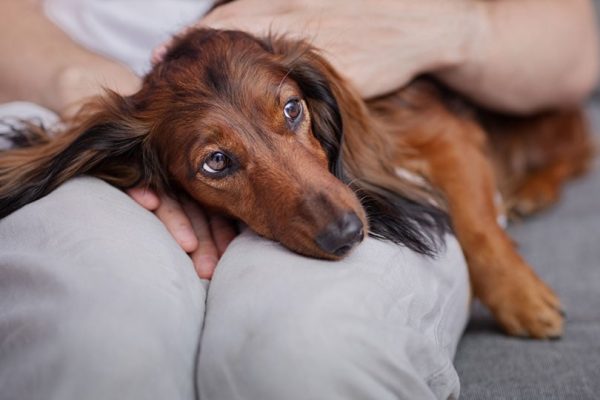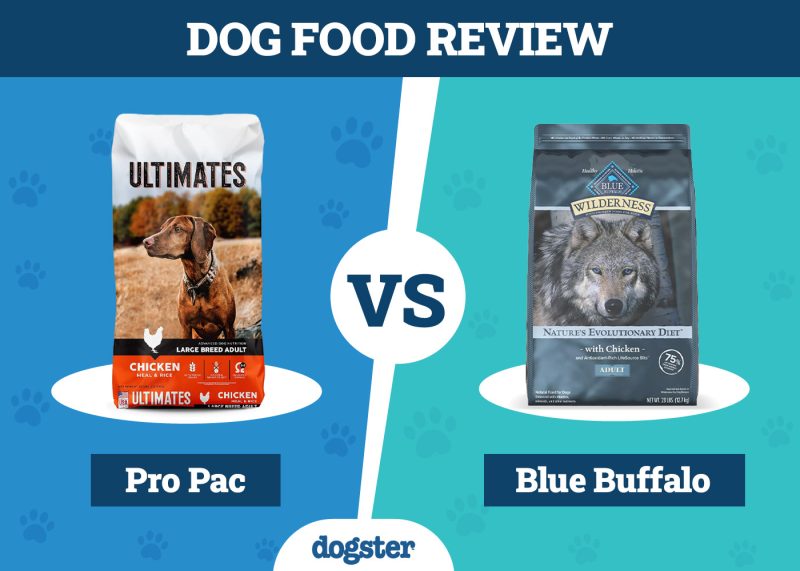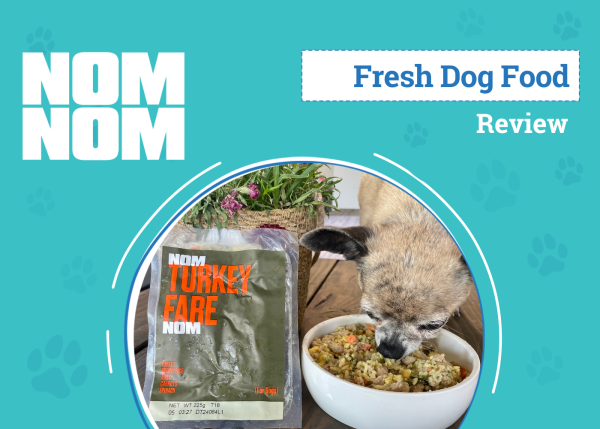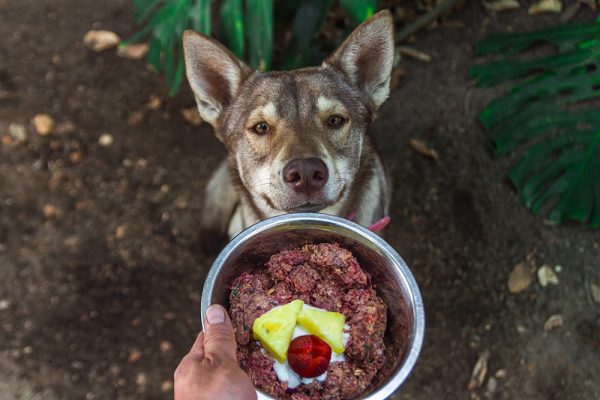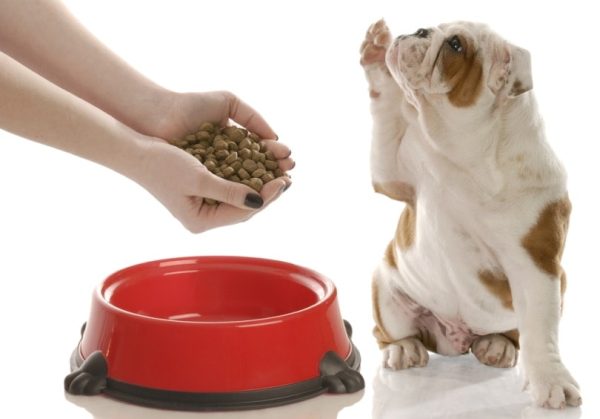Kennel cough is an infectious canine tracheobronchitis caused by several bacteria and viruses. It is highly contagious and infected dogs show respiratory signs with a honking cough, runny nose, and fever. Puppies and geriatric dogs tend to be more susceptible to kennel cough, but dogs of all ages can be infected.
The main way to protect your dog from becoming severely ill from common kennel cough strains is to have them vaccinated. However, some dog owners have noticed that their dogs appear sick shortly after the vaccine. They may even show similar signs to the disease they just got vaccinated against.
So, is it true that dogs can get kennel cough from the vaccine? Yes, some dogs may develop a mild form of kennel cough after the vaccination.

What Is the Kennel Cough Vaccine?
Kennel cough vaccines are an effective way to reduce your dog’s risk or prevent them from contracting kennel cough. The vaccines provide dogs with immunization against certain pathogens that cause kennel cough. These pathogens include Bordetella bronchiseptica (bacteria), adenovirus-2, and parainfluenza virus.
Two types of vaccines may aid in the prevention of kennel cough in dogs, namely the Bordetella vaccine and the DA2PP vaccine.
The American Animal Hospital Association (AAHA) lists the Bordetella vaccine as a non-core vaccine, so it’s usually given based on a dog’s lifestyle and risks.1 This vaccine helps protect against the B. bronchiseptica bacterium, which is a common cause of kennel cough in dogs of all ages. It can be administered to dogs either via an injection under the skin or nasally or orally. It doesn’t necessarily prevent 100% of illness, but it does significantly reduce your dog’s risk of becoming severely ill with kennel cough.
The DA2PP is a core vaccine that covers the other pathogens that may cause kennel cough; adenovirus-2, and parainfluenza virus. Puppies between 6 to 8 weeks old should get the DA2PP vaccine along with the Bordetella vaccine. They will need to get booster shots (only if they receive it through injectables) up until they are 16 weeks and again between 12 to 16 months. Vaccines are given yearly after that.
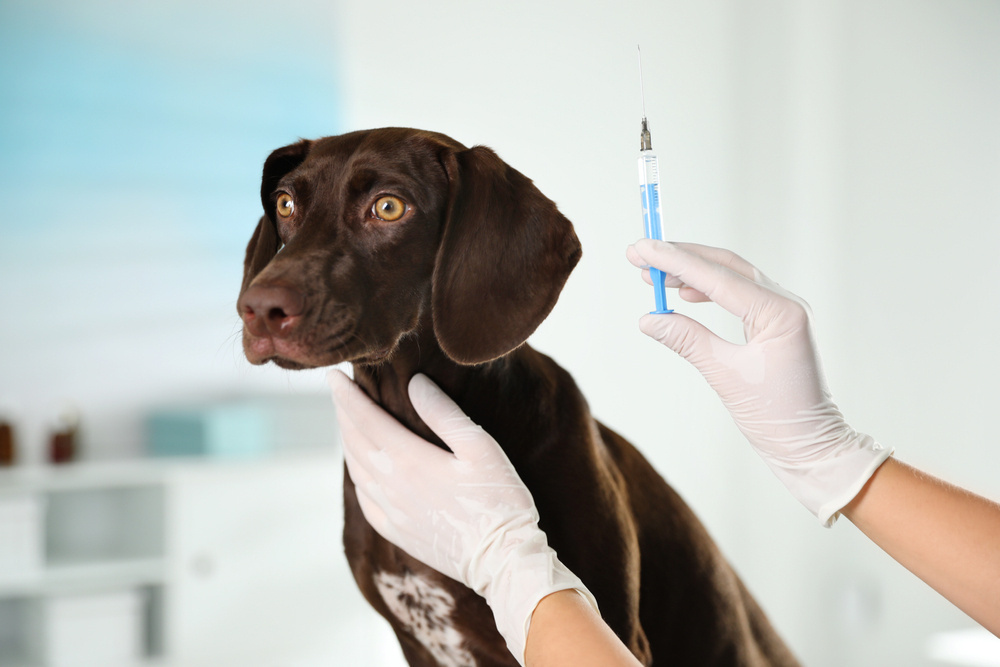
How Does the Kennel Cough Vaccine Affect Dogs?
When a dog receives a vaccine, they are exposed to altered or killed microorganisms that stimulate an immune response. This causes their immune systems to react to the microorganisms and build up a population of white (immune) cells for future protection.
Dogs who have received the kennel cough vaccination will be protected but may still experience certain reactions to the vaccine. This is because their immune systems are stimulated by the vaccine.
- Irritation and itching at the injection site
- Lethargy
- Changes in appetite
- A lump at the injection site
- Low-grade fever
Fortunately, most reactions to the vaccine are short-lived and usually resolves on its own. Severe reactions to the kennel cough vaccine are rare but can be life-threatening. Your dog should receive immediate medical attention if they have collapse, difficulty breathing, hives, swelling, or vomiting shortly after the vaccine.
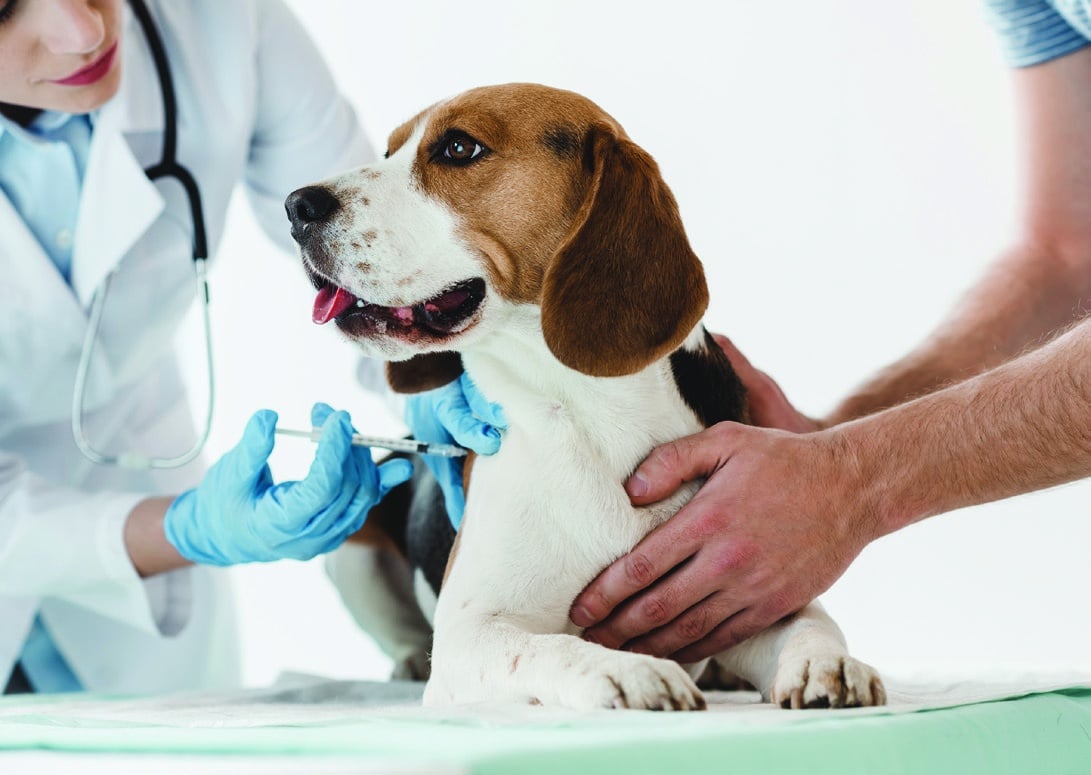
Does the Vaccine Give Dogs Kennel Cough?
It’s not unusual for some dogs to develop a mild form of kennel cough about 2–7 days after the vaccination. This could occasionally happen when dogs are given a modified live vaccine, which has weak yet active organisms. Modified live vaccines do not usually cause the disease that is being prevented but might if the vaccine reverts to virulence. Dogs with prior exposure or built-up immunity from the vaccine might be less likely to develop kennel cough afterward.
Intranasal or oral Bordetella vaccines often contain modified live organisms, which makes them stronger than injectables but higher risk of causing signs or reverting to a virulent form. Additionally, the intranasal Bordetella vaccination could make dogs sneeze or cough after the vaccinations. This could be mistaken as a sign of kennel cough.
It is important to note that even a vaccinated dog could still develop kennel cough. However, they are less likely to experience severe signs of the disease and tend to recover quicker. Furthermore, the signs of a vaccine reaction from a dog’s natural immune response can replicate those of kennel cough too.
If you need guidance on managing your dog’s cough, we suggest you speak to a vet.
If you need to speak with a vet but can't get to one, head over to PangoVet. It's our online service where you can talk to a vet online and get the advice you need for your dog — all at an affordable price!


Conclusion
Dogs are protected against kennel cough by the Bordetella and DA2PP vaccines they get as a puppy and as boosters as adults. Despite being vaccinated, some dogs could get sick from the vaccine with the same disease the vaccine was preventing. This could happen with modified live vaccines.
Also, it is normal for some dogs to have a mild reaction to the vaccines which could be mistaken for kennel cough. Most dogs tolerate the kennel cough vaccine well and generally have little to no adverse effects. Even vaccinated dogs can still get kennel cough, although it is usually less severe.
Featured Image Credit: Lucky Business, Shutterstock
